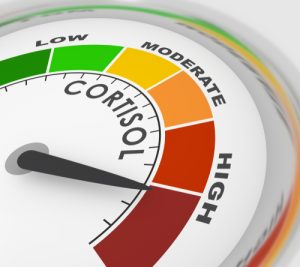Do you want to know how to regulate cortisol levels naturally? If so, this blog post is for you. We will go over what cortisol does in the body and how it can be regulated naturally. To get started, we need to understand what cortisol is. Cortisol is a hormone produced by your adrenal gland when your brain perceives stress or any physical or emotional trauma. Its main function is regulating blood sugar and helping us deal with physical and emotional stressors in our lives. Still, sometimes too much cortisol production can lead to negative consequences like weight gain or chronic fatigue syndrome. The good news, though, is that there are many natural ways to help keep your body healthy!
Impact Cortisol Has on Both Men and Women
Cortisol is a hormone that impacts both men and women, but the effects can be different. In general, cortisol helps the body respond to stressors by releasing energy stores such as glucose and stored fatty acids. This gives the body a burst of energy to either fight or flee from whatever is causing the stress. For men, this can be helpful in situations where they need to take quick action. In women, cortisol can help them prepare for and handle childbirth.
However, too much cortisol production over a long period can have negative consequences for both men and women. For men, high cortisol levels can lead to weight gain, especially around the abdomen, decreased libido, and problems with erectile dysfunction. For women, high cortisol levels can lead to weight gain, especially around the hips and thighs, fatigue, insomnia and mood swings.

As women begin to experience menopause, their cortisol levels can change. In the early stages of menopause, cortisol levels may stay the same or even increase as the body tries to compensate for the lack of estrogen. However, later on in menopause, cortisol levels may start to decline. This can lead to symptoms such as fatigue, insomnia, hot flashes and night sweats.
How to Regulate Cortisol Levels Naturally
So now that we know a bit about cortisol and what it does in the body, let’s go over some ways that you can regulate your cortisol levels naturally.
One of the best ways to keep cortisol in check is to get enough sleep. Most people need around eight hours of sleep per night, but everyone is different, so it’s essential to find what works for you. When we don’t get enough sleep, our cortisol levels tend to be higher than average. This is because when we’re tired, our bodies perceive that as a stressor and start to produce more cortisol.
Exercise is another excellent way to regulate cortisol levels. When you exercise, your body releases endorphins, which help reduce stress and promote feelings of well-being. This is important because cortisol production often increases when you feel stressed out. So, by getting in the habit of exercising, you can help lower your stress levels and keep cortisol at healthy levels.
Ensure you’re eating plenty of fruits and vegetables, whole grains, lean protein and healthy fats. This will help keep your blood sugar levels stable, which will in turn regulate cortisol production.
Lastly, it’s also essential to reduce the amount of stress we experience daily. This means finding ways to de-stress that work for you. Some people like to take a hot bath, read a book or listen to calming music when they need to relax. Others find that doing relaxation exercises or yoga helps them calm down. Yoga, meditation, deep breathing exercises and journaling are great ways to reduce stress and help regulate cortisol levels.
The important thing is to find what works for you and make it a regular part of your life. Incorporating stress-reducing activities into your routine can help keep cortisol levels in check and reduce the risk of many common side effects like weight gain.
In conclusion, by following these simple tips, you can help keep your cortisol levels in check and avoid the negative consequences of too much production. Cortisol is a very important hormone in the body, but it needs to be regulated. By getting enough sleep and exercise as well as reducing our stress levels on a regular basis, we can help keep cortisol production under control.




